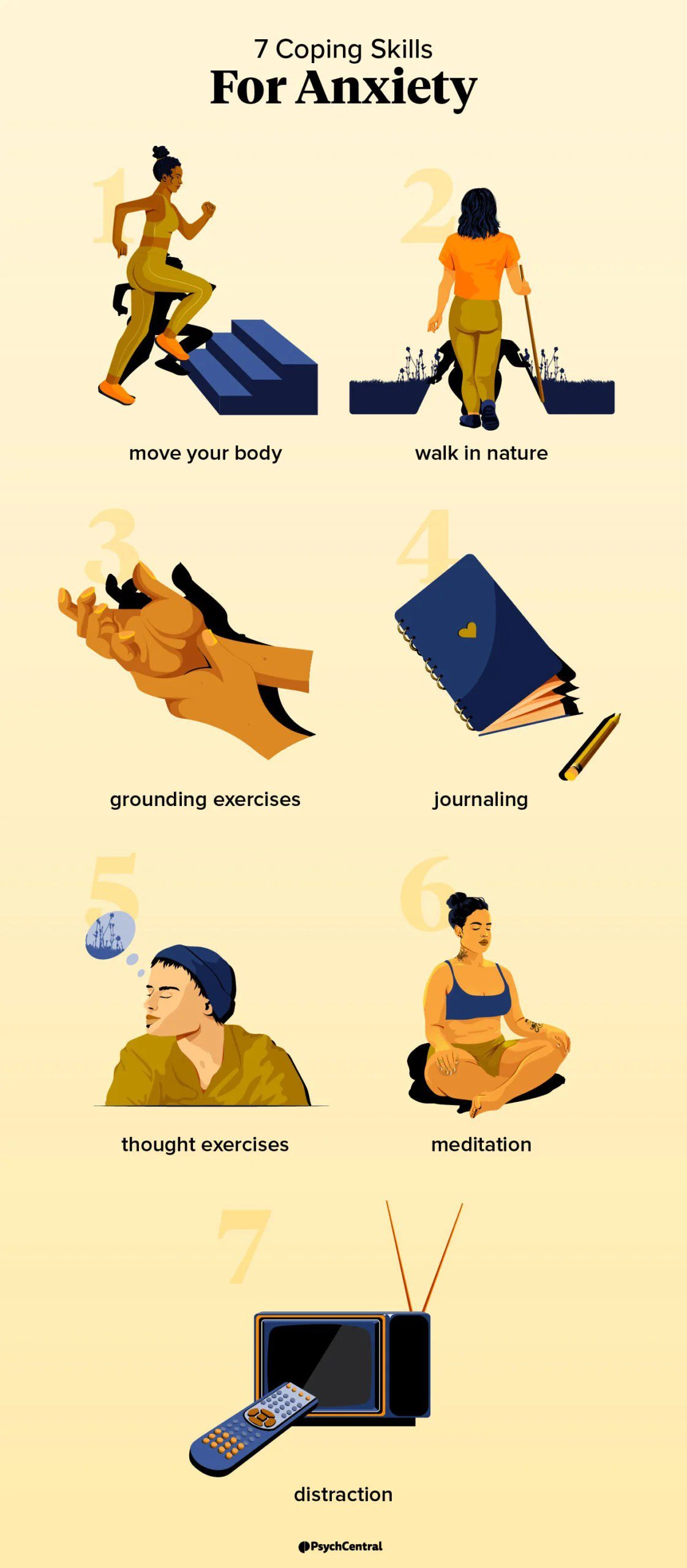Anxiety can be a debilitating experience for many people, but there are effective coping mechanisms that can help manage anxiety. These include deep breathing, mindfulness, taking a break, exercise, getting enough sleep, connecting with others, journaling, avoiding caffeine and alcohol, cognitive-behavioral therapy, and seeking professional help. Using these coping mechanisms consistently can help individuals lead a healthy and fulfilling life despite their anxiety. It is important to find the coping mechanism that works best for each individual and to seek professional help when necessary. With the right support and tools, managing anxiety can become more manageable.
10 Effective Coping Mechanisms for Managing Anxiety
Anxiety is a common issue faced by many people, and it can be a debilitating experience. There are various ways to manage anxiety, and finding the right coping mechanism is essential for an individual’s overall wellbeing. Here are ten effective coping mechanisms for managing anxiety.
1. Deep Breathing
Deep breathing is a simple yet effective way to reduce anxiety levels. It involves taking long and slow breaths through the nose and exhaling through the mouth. This technique encourages the body to relax and slows down the heart rate.
2. Practice Mindfulness
Mindfulness is a technique that involves paying attention to the present moment. People who experience anxiety often struggle with intrusive thoughts and worry about the future. Practicing mindfulness helps to ground individuals in the present moment, helping them to manage their anxiety.
3. Take a Break
Taking a break from work or your routine activities can help alleviate anxiety. Self-care activities such as going for a walk, taking a relaxing bath, or reading a book can be helpful in managing anxiety.
4. Exercise
Engaging in regular physical activity such as running or yoga can help reduce anxiety levels. Exercise helps to promote the release of endorphins, which are the body’s natural mood boosters.
5. Get Enough Sleep
Sleep is essential for good mental health. People who experience anxiety often struggle with getting enough sleep. Sleep deprivation can cause irritability, mood changes, and increased anxiety levels. Getting adequate sleep is crucial for managing anxiety.
6. Connect with others
Social support is essential for managing anxiety. Talking to friends, family, or a mental health professional can help alleviate anxiety levels. It is essential to build a support system to facilitate healing and recovery.
7. Journaling
Journaling is a helpful technique in managing anxiety. It provides individuals with a safe space to express their feelings and innermost thoughts. Writing down worries and fears can help reduce anxiety levels and promote self-awareness.
8. Avoid Caffeine and Alcohol
Caffeine and alcohol can increase anxiety levels in people who experience anxiety. They are both stimulants that can trigger or worsen anxiety symptoms. Reducing caffeine and alcohol intake can help alleviate anxiety levels.
9. Cognitive Behavioral Therapy (CBT)
Cognitive-behavioral therapy is a type of therapy that focuses on changing negative thoughts and behaviors. It is a highly effective treatment for anxiety and other mental health conditions. CBT helps individuals identify and change unhelpful thoughts that contribute to their anxiety.
10. Seek Professional Help
Anxiety can be a severe and debilitating issue that may require professional help. Seeking help from a therapist or a mental health professional can help individuals manage their anxiety. Professional help can provide individuals with the tools they need to manage their anxiety and lead a healthy and fulfilling life.
Conclusion
Managing anxiety can be challenging, but using effective coping mechanisms can help individuals lead a healthy and fulfilling life. Engaging in activities such as exercise, deep breathing, mindfulness, and journaling, among others, can help alleviate anxiety levels. Seeking professional help is also essential for individuals who experience severe and debilitating anxiety. It is crucial to find a coping mechanism that works for you and to practice it consistently to manage anxiety effectively.
